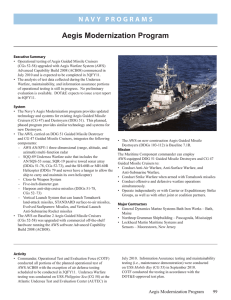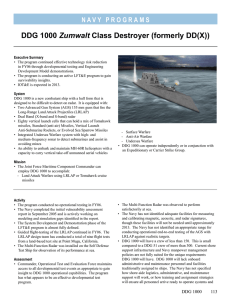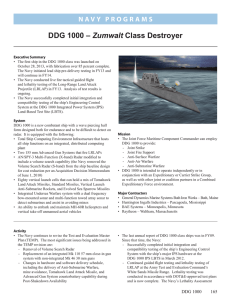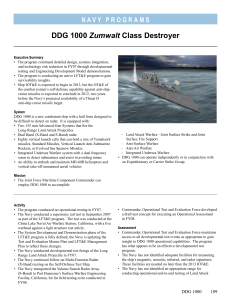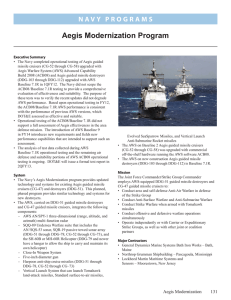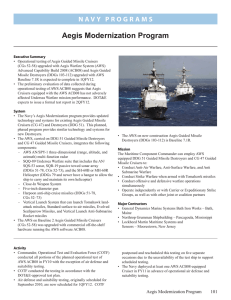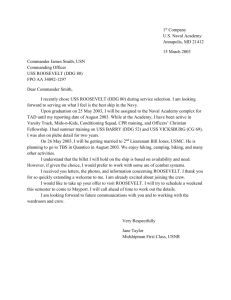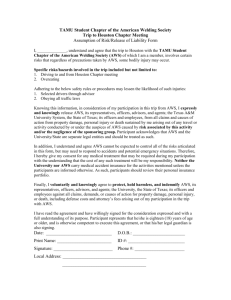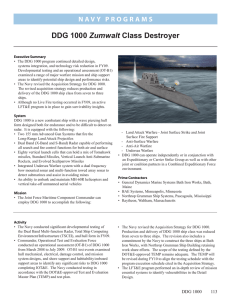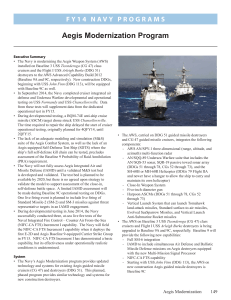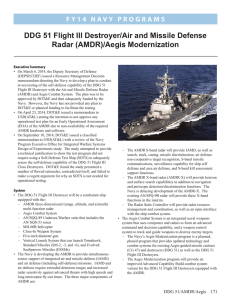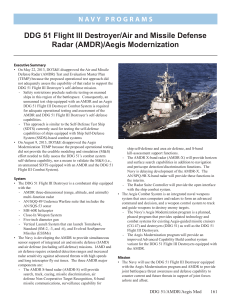Arleigh Burke
advertisement
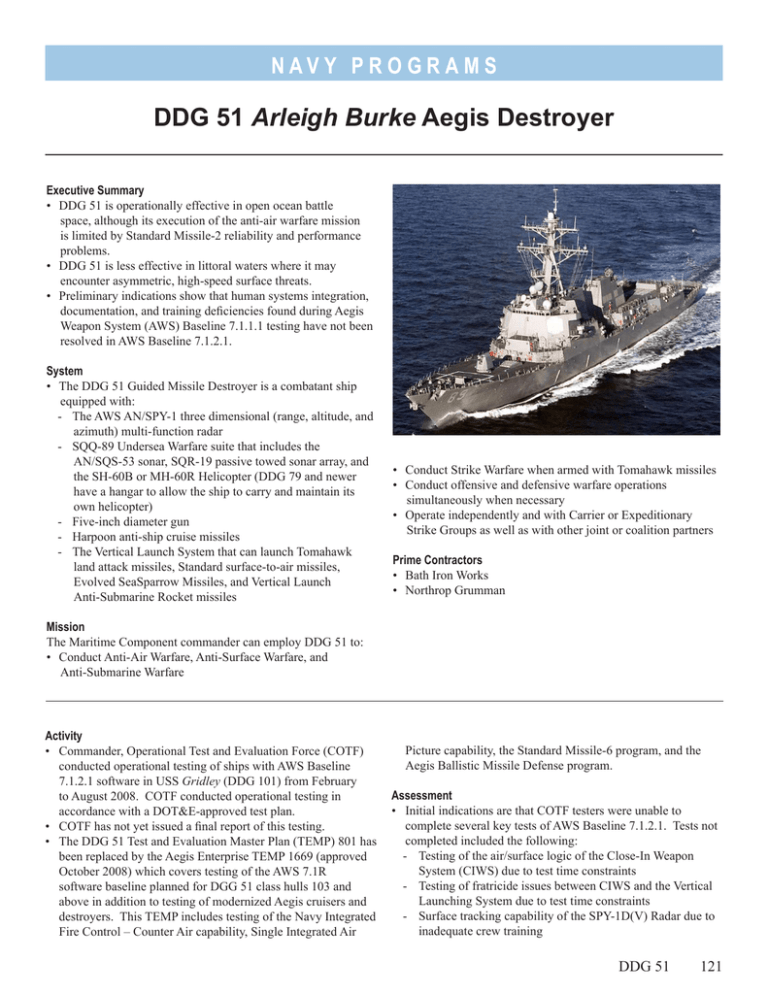
Na v y P RO G R A M S DDG 51 Arleigh Burke Aegis Destroyer Executive Summary • DDG 51 is operationally effective in open ocean battle space, although its execution of the anti-air warfare mission is limited by Standard Missile-2 reliability and performance problems. • DDG 51 is less effective in littoral waters where it may encounter asymmetric, high-speed surface threats. • Preliminary indications show that human systems integration, documentation, and training deficiencies found during Aegis Weapon System (AWS) Baseline 7.1.1.1 testing have not been resolved in AWS Baseline 7.1.2.1. System • The DDG 51 Guided Missile Destroyer is a combatant ship equipped with: - The AWS AN/SPY-1 three dimensional (range, altitude, and azimuth) multi-function radar - SQQ-89 Undersea Warfare suite that includes the AN/SQS‑53 sonar, SQR-19 passive towed sonar array, and the SH-60B or MH-60R Helicopter (DDG 79 and newer have a hangar to allow the ship to carry and maintain its own helicopter) - Five-inch diameter gun - Harpoon anti-ship cruise missiles - The Vertical Launch System that can launch Tomahawk land attack missiles, Standard surface-to-air missiles, Evolved SeaSparrow Missiles, and Vertical Launch Anti‑Submarine Rocket missiles • Conduct Strike Warfare when armed with Tomahawk missiles • Conduct offensive and defensive warfare operations simultaneously when necessary • Operate independently and with Carrier or Expeditionary Strike Groups as well as with other joint or coalition partners Prime Contractors • Bath Iron Works • Northrop Grumman Mission The Maritime Component commander can employ DDG 51 to: • Conduct Anti-Air Warfare, Anti-Surface Warfare, and Anti‑Submarine Warfare Activity • Commander, Operational Test and Evaluation Force (COTF) conducted operational testing of ships with AWS Baseline 7.1.2.1 software in USS Gridley (DDG 101) from February to August 2008. COTF conducted operational testing in accordance with a DOT&E-approved test plan. • COTF has not yet issued a final report of this testing. • The DDG 51 Test and Evaluation Master Plan (TEMP) 801 has been replaced by the Aegis Enterprise TEMP 1669 (approved October 2008) which covers testing of the AWS 7.1R software baseline planned for DGG 51 class hulls 103 and above in addition to testing of modernized Aegis cruisers and destroyers. This TEMP includes testing of the Navy Integrated Fire Control – Counter Air capability, Single Integrated Air Picture capability, the Standard Missile-6 program, and the Aegis Ballistic Missile Defense program. Assessment • Initial indications are that COTF testers were unable to complete several key tests of AWS Baseline 7.1.2.1. Tests not completed included the following: - Testing of the air/surface logic of the Close-In Weapon System (CIWS) due to test time constraints - Testing of fratricide issues between CIWS and the Vertical Launching System due to test time constraints - Surface tracking capability of the SPY-1D(V) Radar due to inadequate crew training DDG 51 121 Na v y P RO G R A M S - Testing against high-speed surface threats due to equipment failures and inadequate crew training • Initial indications from the FOT&E testing are that the AWS 7.1.2.1 software baseline continues to have limited effectiveness in littoral waters against high-speed surface threats. Results also indicate that the Navy has not corrected the human systems integration, documentation, and training deficiencies found during AWS Baseline 7.1.1.1 testing. 122 DDG 51 Recommendations • Status of Previous Recommendations. The Navy has closed three of the four FY05 recommendations and one of the four FY06 recommendations. • FY08 Recommendation. 1. The Navy should complete all planned key operational tests of AWS software baseline 7.1.2.1 in accordance with the DOT&E-approved test plan.
